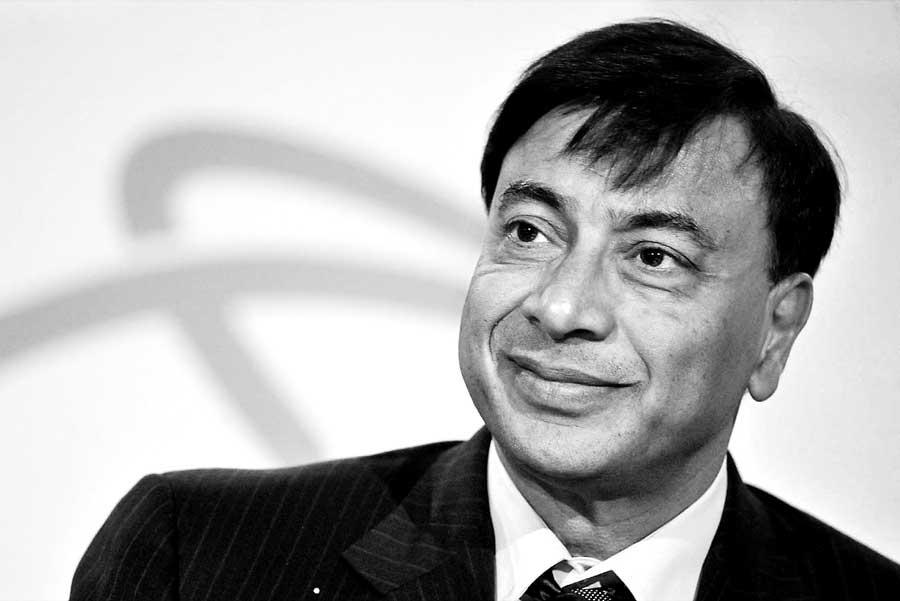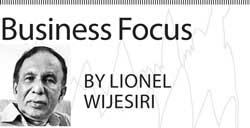13 Jan 2020 - {{hitsCtrl.values.hits}}

 Lakshmi Niwas Mittal (born June 15, 1950) is an Indian-born steel magnate, based in the United Kingdom. He is Chairman and CEO of ArcelorMittal, the world’s largest steelmaking company. Mittal owns 38 percent of ArcelorMittal and holds an 11 percent stake in Queens Park Rangers F.C.
Lakshmi Niwas Mittal (born June 15, 1950) is an Indian-born steel magnate, based in the United Kingdom. He is Chairman and CEO of ArcelorMittal, the world’s largest steelmaking company. Mittal owns 38 percent of ArcelorMittal and holds an 11 percent stake in Queens Park Rangers F.C.
Being born into a business family, Mittal after graduating from St. Xavier’s College in the Commerce stream, ventured into his dad’s steel business Nippon DenroIspat. The restraint laid on steel by the India government back in 1976 led the 26-year-old Mittal to travel all the way to Indonesia and build a new mill on the land his father held there. He named it Ispat International.
He spent the late 1970s and early 1980s running the Indonesian mill. But in 1989, starting with a plant in Trinidad and Tobago, Mittal began purchasing and overhauling struggling steel mills in areas such as Mexico, Romania and Ukraine.
In 1997, Ispat International went public in 1997 and in 2004, Mittal integrated his privately-held steel company LNM Holdings into Ispat for US $ 13 billion and Mittal Steel took shape.
In order to become a major player in the global steel market, Mittal turned to Kazakhstan. Mittal bought the country’s Karmet Steel works in Temirtau for just US $ 400 million. The single acquisition turned out of be the wisest decision by Mittal since Kazakhstan shares a border with China, a country where the steel demand was about to rise. Later, Mittal became a global steel producer with operations in 14 countries.
Visionary Mittal saw immense opportunity in the fragmented international steel industry that was crying out for consolidation. It was largely because lots of companies were owned by the governments and research and development was inexistent. The sector was characterised by acute overcapacity, high indebtedness and steel prices that had
hit rock bottom.
Small steel companies were unable to make competitive deals with large clients, such as automakers, despite the high demand. Mittal’s company was in a good position to negotiate favourable prices with such companies as it controlled nearly 40 percent of the market for flat-rolled steel in America.
Mittal created Mittal Steel in 2004 through a takeover of his private company LNM by his public one Ispat. Mittal Steel became the largest steelmaker in the world with shipments of 42.1 million tonnes of steel and profits of over US $ 22 billion in 2004.
In a rare interview with Nelson D. Schwartz in Fortune, Mittal remembered a business trip to the United States back in the early 1990s, when he met several leading
steel-company executives.
“Come Friday, everyone was saying have a nice weekend and play golf well,” Mittal said.
“I never played golf and it shook me that the mentality was that you work for five days of the week and play golf for the rest.”
The British press continues its fascination with Mittal and his family, which includes his son Aditya, who serves as President and Chief Financial Officer of Mittal Steel. Mittal’s daughter Vanisha married in 2004 in an extravaganza in France that reportedly cost US $ 55 million.
Mittal also owns the most expensive private residence in London, a mansion at Kensington Palace Gardens. Valued at US $ 128 million and boasting a swimming pool embedded with costly jewels, the home was once owned by the founder of the Reuters news agency.
Mittal’s biggest and boldest move came in 2006, when he tried to buy Arcelor, a company created through a merger of firms from Spain, France, Luxembourg and Belgium. Luxembourg-based Arcelor was at the second spot in the industry and its CEO Guy Dollé rejected Mittal’s initial offer of US $ 24 billion.
But due to shareholder uproar, the Frenchman eventually sold his company to Mittal for US $ 33.5 billion. At that time, Arcelor Chairman Guy Dolle was forced to swallow his words after dismissing Mittal Steel as a company of Indians paying with monkey money. As of today, ArcelorMittal is the world’s number one steel and mining company, with over 260,000 employees in more than 60 countries.
Mittal is well known to turn sick steel companies into money spinners, something which has always amazed the industry and his peers. His business acumen, swift decision-making ability and boldness have resulted in the spectacular amount of wealth.
In respect to all his success, Forbes named him in the list of India’s Richest 2019. Mittal spent eight years at the top of the Sunday Times Rich List.
Mittal was honoured for his excellence in the area of trade and industry with the country’s second top civilian awards – ‘Padma Vibhushan’ by the Government of India.
What lessons can you learn from Lakshmi Niwas Mittal?
Here are his top 10 rules:
Knowledge is the key- He personally believes that if you have knowledge, ambition and focus and if you are determined, use it to grow. Knowledge is power. In simple words, knowledge is the key to success.
Take bold decisions- It’s your decisions that differ you from others. The decisions that you take need to be very transformative and they have to succeed. Bold decisions are not easy and free from risk. So, before taking them, you have to apply your full experience. See and analyse through the situation and risk. One can only make a step change in their career by taking such big and bold decisions.
Be responsible- A company’s long-term success directly depends on being responsible. Being responsible not only provides you with more opportunities but it also builds a good reputation and a sense of belongingness towards the company.
Don’t set high goals- Mittal never sets high goals for himself. He believes to work in present and try to achieve that very target. His goals keep on changing as he proceeds in life. One should not set high goals to avoid disappointment, rather should focus on small targets and their completion, ultimately leading to big milestones as a whole.
Seize the opportunities- Opportunities don’t come every day. For being successful, one should make and derive the maximum out of the present opportunities available in front. Opportunities serve as challenges, which are very important for the growth and diversification of any firm.
Prove your critics wrong- Critics are the people who show the reality and tell you about the mistakes. In this competitive world, only those firms that achieve milestones learn from their mistakes and take critics in a positive sense.
Don’t lose focus- The most important rule for success is to maintain your focus. Being focused on what you desire will only lead to your growth as an individual and start-up as a whole. Being focused here means taking any sort of steps, small or big, but towards the path of success.
Get experience- Nothing is more beneficial than the experience one possesses. Experience does not come by education but it can only be acquired by continuously working, sharing and learning from others’ experiences
Lead by example- To motivate and inspire everyone, it’s your duty to lead by example. A true leader never gives commands to his team but lead by doing things what he wants
others to do.
Do things differently- For survival, stability, growth and diversification, one should always do things in one’s own manner or differently from others. In such competition, a firm’s growth directly depends on their focus on the core activities. Doing the same work, task and activities but in a different manner makes the difference.
(Lionel Wijesiri is a retired company director with over 30 years’ experience in senior business management. Presently he is a freelance journalist and could be contacted on [email protected])
26 Dec 2024 35 minute ago
26 Dec 2024 41 minute ago
26 Dec 2024 1 hours ago
26 Dec 2024 2 hours ago
26 Dec 2024 4 hours ago